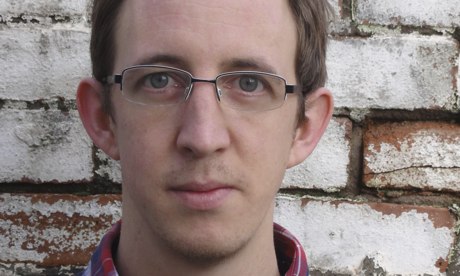
Congratulations to Nathan Filer for The Shock of the Fall, a category winner in the Costa book awards and now a contender for the overall prize. In making the award Jo Brand hailed it as "one of the best books about mental illness" and her panel as a whole praised the book as "so good it will make you feel a better person".
I've always felt in need of betterment and I'll make a point of buying Filer's book. Not least because the judges' praise raises the age-old argument about whether reading good novels makes you a good person and whether reading bad novels makes you a bad person. It is something most lovers of literature wonder about.
Taking badness first, the last major trial for obscene fiction in this country was that brought against Hubert Selby's Last Exit to Brooklyn in 1967. David Sheppard bravely testified for the prosecution that he had indeed (temporarily, one understood) been "depraved and corrupted" by Selby's novel, specifically by a graphic gang-rape scene. "Not unscathed" was how he put it. Sheppard later rose to be a much-loved bishop of Liverpool (was ever a crook-carrying primate more aptly named?). At the time of the 1967 trial the Rev Sheppard was working as a social worker in London's East End slums. Before that he had been a star opening batsman for England, so gave up white flannels for hassock. A good man but made less good, he averred on oath, by a very bad novel. One had to take him seriously.
Last Exit was acquitted on the more persuasive testimony of a battery of literary critics arguing that fiction did not work in that primitive way. Simone de Beauvoir had come to much the same conclusion about fiction in her 1951 essay, Should We Burn de Sade?. But the jury is still out. There are, I would bet, feminists (of both sexes) perturbed by the dramatic adaptation of American Psycho (a scathing novel if there ever was one) currently running in London's West End.
So if novels (hypothetically at least) can have bad effects, can they also have the kind of good effect the Costa judges ascribe to Filer's book? At least one institution would seem to think so. Recently the School of Life, set up shop in London. The school (which has aroused public interest and much jocularity) offers "bibliotherapy" in which the bibliotherapist, having profiled the tutee, prescribes a curriculum of literary reading matter to enlighten, inform, instruct, and enrich his or her life ('Depressed? Read more Wodehouse'? – perhaps not).
Alain de Botton (founder of the School of Life) has been making the same kind of point, with exquisite literary style, for years in books such as How Proust can Change your Life and, most recently Art as Therapy. What kind of monster, one has to wonder, would Brian Sewell be if he had not spent 70 years immersing himself in high art? One shudders at the thought.
There's some interesting psychological research, reported in the most recent issue of Wired, which is relevant. Reading "good books", experiments run at Emory University suggest, "may make permanent changes to your brain". Subjects wore MRI helmets while reading a novel. Expected changes were observed during the reading but, most significantly, there were lasting changes. The subjects' brains were, apparently, rewired. The novel the helmeted human lab rats read was Robert Harris's Pompeii. It would be interesting to run the experiment using Filer's novel.

